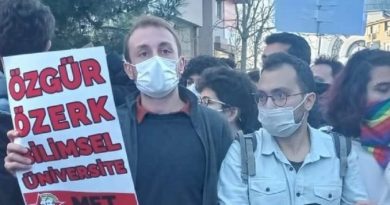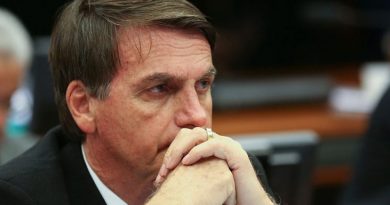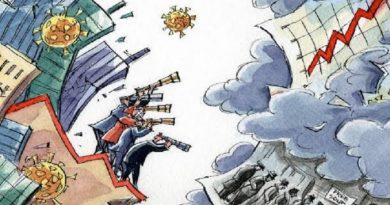Bolivia: elections and political crisis
an acute political crisis in Bolivia was opened after the presidential elections 20 October. El presidente Evo Morales anunció su triunfo por un margen poco superior al 10%, with which to win in first round. The main opposition candidate, Carlos Mesa denounced fraud and requires the completion of a second round, and Evo said that this is an attempted coup. mobilization and shocks were triggered between both sides, each clinching the defense of democracy, and strong institutional and legitimacy crises.
Evo Morales arrived in this election with advanced deterioration of their social base and its overall legitimacy. Shortly after taking office he betrayed Program October revolutions 2000 Y 2003 that ousted Sanchez de Lozada and Evo led the MAS to power, to negotiate with the right capital and the Political Constitution, above the Constituent Assembly 2008.
Since then, although giving concessions to the mass movement and increasing state involvement in the economy, Evo stood as guarantor of capitalist business in Bolivia, holding the extractive economic model dependent and. This led to collide and break sections of the working class and the indigenous peasantry itself that makes up the bulk of its social base. A central expression of this break was state repression and criminalization of social protest, including miners and coca growers in northern La Paz, that already have more than 200 processed peasants.
In 2016 Evo called for a referendum to amend the constitution and enable your third term, he ended up losing. But the following year the Plurinational Constitutional Court ignored the referendum, She said articles of the Constitution to prevent a second reelection, enabling Evo run this year for his fourth presidential term. In this way, the president reached the current election strongly questioned its democratic legitimacy.
Carlos Mesa, meanwhile, It is an exponent of the traditional right. He was vice president Sanchez de Lozada, He assumed the presidency when he was cast by the popular mobilization 2003 and he had to resign himself also to mass demonstrations against him two years later. Today is presented as an alternative, but it represents everything old already ruled Bolivia and sank into dependence and poverty.
The current crisis erupted during counting. 20h near the 83,8% of the votes counted the Transmission of Preliminary Electoral Results gave it to Evo Morales 45,3% of the vote, seven points above Mesa, implying a runoff. But at that time the Supreme Electoral Tribunal suspended the counting and transmission of results, until 15 hours later, when they published the final results, which showed a drastic change in the trend and gave Evo winner with 47% Y 10,5 points above Mesa, which implies a first-round victory.
The announcement triggered a series of mass mobilizations, the courts of Sucre and Potosi were torched and several cities were clashes between police and protesters. Mesa denounced fraud and launched a heterogeneous Coordinator for the Defense of Democracy, behind which is mounted the old oligarchic and racist right, and imperialism. The OAS said that only recognize the outcome of the election if they were subject to a "binding" audit "recommended" conducting a second round even if Evo ends up holding a major difference to 10%. US governments, Brazil and Argentina also require the convening of a second round "for the Electoral Observation Mission of the OAS is unable to verify the results of the first round". It is an open interference in the internal politics and attack on the sovereignty of Bolivia.
Nevertheless, mass protests membership is indicative of the growing disillusionment with the model of Morales. In addition to the massive participation of students, It has joined the protest the Federation of Neighborhood Councils of El Alto (Fejuve), one of the protagonists of the Gas War 2003 Evo that catapulted to power two years later.
Other union and peasant organizations, as CONALCAM, the COB and COR, They mobilized in defense of Evo, He is arguing that the opposition wants to ignore the peasant and indigenous vote that would have reversed the trend scrutiny.
Both sides raise the defense of democracy after sustaining a capitalist system that guarantees profits over the needs and people's rights. Is indicative in this respect the position of the National Chamber of Industries, He issued a careful statement asking that the State Constitution and the Election Law is respected and calling the citizens to preserve the normal development of economic activity. The statement shows that the interests of business insured feel whoever wins, and are more concerned about maintaining the stability of its business in the context of a global crisis that will force the next government to advance similar adjustment measures which are causing social unrest in other countries in the region like Ecuador and Chile.
No solution in favor of the workers and peasants will come from a government or Evo Morales Mesa. Bolivian people's problems will not be solved there is a second round or not there. Thus, is indispensable and independent class position to reject, first, any imperialist interference in the country or the oligarchic coup attempt right. But also claiming a bottom outlet, by a free and sovereign constituent assembly, in which the Bolivian workers and peasants discuss and decide on what political basis, economic and social organizing your country. And the construction of a classist and revolutionary alternative to fight for a government of workers and peasants and socialist Bolivia and Latin America.
Correspondent




